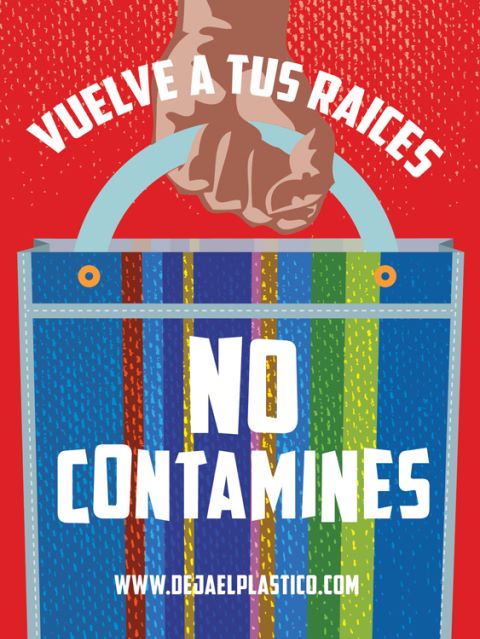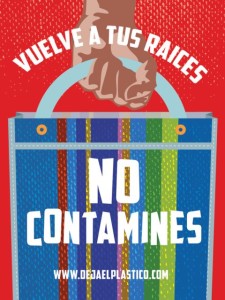Deja El Plastico: Latino Efforts in Banning Plastic Bags

By Jose Gonzalez, NewsTaco
Currently in California, campaigns and debates over “ban the bag” have risen in various cities. Most recently there was an effort at the state level that failed. Nonetheless, many municipalities have been successful throughout the state in implementing local bans on plastic bans.
The effort is not just in California, as many places throughout the US and other parts of the world have implemented bans or are having the same debate. Mexico City implemented a ban in 2009.
Even so, after such bans are implemented, debate continues as to their effects. An opinion page in the San Francisco Chronicle this week argued that reusable bags were “unhealthy” due to facilitating food-borne illnesses. San Francisco passed the nation’s first plastic bag ban in 2007.
But rather than diving straight into weighing the pros and cons in the debate over banning plastic bags, it is important to note Latino perspectives and efforts in the campaign to “ban the bag” in California.
This is important because in many environmental campaigns, when communities of color are part of the picture, they may be the “victims” or simply the recipients of detrimental environmental effects. But in many cases, Latino communities are actively speaking with their own voices—and it is important to see how those issues and campaigns are framed rather than just as an “added-on” constituency to a mainstream conservation effort.
Latino participation in the plastic bag ban campaign is notable in that they were making cultural connections to why it made sense to ban plastic bags.
With a tagline like “Vuelve a tus raices”, return to your roots, it highlighted how many cultural and community practices are by effect conservation practices. Some of these are older practices, some are newer.
Growing up in Mexico as a kid, I remember we did not shower because it was wasteful; we used a pila de agua, a raised concrete pool, to hold water for washing. Similarly, in Mexico and the US, collecting cans and bottles is a good recycling practice, but more importantly it is a way to supplement the family income.
In regards to the bags, one can imagine the colorful market mesh bags our abuelitas would take to the mercado for shopping. Other times it served as a school bag for children—I had one myself as an elementary student.
It was that very image that the “Deja El Plastico” effort used to lead the campaign online, including unique videos in Spanish.
Thus, while there was certainly plenty of English campaign imagery and framing, it was unique and empowering to see Latino voices and Latino faces urging their communities to be a part of this campaign—and in many ways to take ownership of the framing.
This matters for conservation organizations to see how such efforts can take shape, and to avoid issues where Latino communities are “used” for campaigns but not really integrated as key partners.
[Photo by Deja El Plastico, Azul]

